|
Photo Credit: @angelinabambina
While many organizations are engaged in cultivating social justice out in the world, they are simultaneously struggling with how best to address the multiple layers of internal injustices that create unwelcoming work environments, particularly for black, indigenous, and people of color (BIPoC). This past August, Portland Women in Technology (PDXWiT) published the 2019 State of the Community. The report offered findings from a survey of just over five thousand respondents in the tech world for the purpose of gauging the sector’s health when it comes to matters of diversity, equity, and inclusion (DEI). One of the most fascinating realizations that emerged from the study is that: “most white people in the industry said their companies take diversity seriously and would recommend someone from an underrepresented group work at their company. But among people from other racial and ethnic groups, and transgender people, fewer than a third agree…” To this discovery, Megan Bigelow, the board president of PDXWiT stated: “These [DEI] initiatives that are being built are resonating with white people. However, the efforts of the white people who generally run those companies aren’t resonating with the people they say they’re trying to reach…” Demonstrating this same dilemma within the business sector, despite the goal of creating an economy that is inclusive of everyone and implementing a new model of inclusive corporate governance, Jay Coen Gilbert, cofounder of B Lab explained in Erasing Institutional Bias: How to Create Systemic Change for Organizational Inclusion: “…only 43 percent of B Lab’s staff who are people of color feel they can bring their whole selves to work, compared to 96 percent of their white coworkers. Houston, we have a problem..” Jay is absolutely right —we do indeed have a problem. However, what both Megan and Jay describe is not the actual problem. The facts that diversity initiatives are not resonating with BIPoC, and they do not feel like they can bring their whole selves into a work space are symptoms of a deeply entrenched problem within organizations. The problem organizations are faced with in their attempts to cultivate just, equitable, and diverse working environments is that they are not relying upon the innate wisdom and leadership that can be found in the voices that have been most acutely impacted by unwelcoming, inequitable, and exclusionary spaces. Simply put, organizations are not placing the appropriate focus on the voices of black, indigenous, and womxn of color (BIWoC) when trying to create transformative organizational change. And, beyond the appropriate focus, few organizations are consistent with following the lead and directives of BIWoC. The word “womxn” includes those who are both members of traditionally oppressed racial/ethnic groups and who identify as trans, gender non-conforming, non-binary, or cisgender. The well intentioned landscape of organizations is peppered with examples of conversations and actions around DEI by well-meaning, predominantly white-led nonprofit organizations. To the detriment of these organizations, such initiatives are overwhelmingly anchored around the bravado of the white voice. The irony here is that at the same time organizations are amplifying the call to cultivate diversity, equity, and inclusion in their workspaces, the voices that matter most in answering this call are (still) being muted and silenced. In Hacking Diversity in Tech by Emphasizing Retention, Megan Rose Dickey posits that retention is key in helping to cultivate diversity. What is intriguing in this piece is the use of the word hack as a way to communicate that there is indeed a “work around” for the problematic environments organizations are grappling with. By definition, a hacker is any skilled expert that uses their knowledge to overcome a problem. If the problem is the lack of diversity -- as Dickey’s article suggests, and this lack is a direct result of the systemic marginalization that occurs within organizations, then there is no better expert voice to hack diversity than those who most acutely suffer from, and bear the brunt of the problem. It goes without saying that white folks ought not be the experts in the room on this because they do suffer the most from the problem. Yes, white folks suffer within the oppressive system that we aptly name white supremacy/white patriarchy. However, the suffering is acutely and vastly different than the suffering that is experienced by BIWoC within the same system. In fact, I would go as far as to say that while they do suffer, white folks are beneficiaries of the problem, which is the very reason why they are able to be seen as the experts in an area that fundamentally is about addressing the oppression on traditionally impacted populations. What organizations lose in silencing and muting the already marginalized voices of BIWoC is the lived experiences and narratives of BIWoC who have been at the painful end of systemic marginalization in organizations. When organizations choose not to center BIWoC voices in creating just and sustainable work environments, they end up reducing critical narratives and stripping away the profundity that is deeply embedded in these narratives. In doing so, organizations forfeit access to the groundswell of wisdom that is only found within the years of experience BIWoC have in both navigating and surviving unwelcoming and exclusionary organizational environments. For organizations working to better hold DEI within their work spaces, success will be achieved to the extent to which they are able to shift power to the voices and lived experiences of BIWoC. When we consider the role marginalized and impacted people play in creating transformative organizational change, it has been said that it is the very living, existing, and survival of the marginalized that is the key. If we can agree on this belief, then organizations must remember that it is precisely the marginalized position of BIWoC that renders them uniquely suited and poised to create meaningful organizational change when it comes to creating spaces that better hold and support diversity, equity, and inclusion. As organizations further marginalize, mute, and silence the voices and resourceful power that lies exclusively within BIWoC, efforts to create diverse, inclusive, and equitable work spaces will only end up perpetuating the very harmful environments they desire to transform. Mother. Teacher. Agitator. S. Rae Peoples is the founder and principal consultant of Red Lotus Consulting. She enjoys spending her time in meaningful relationships and work that supports her desire to promote justice, equity, diversity, and inclusion. A native of California with a Midwest upbringing, S. Rae is currently rooted in motherhood and community while serving as a student affairs administrator at Massachusetts College of Art & Design in Boston, MA.
0 Comments
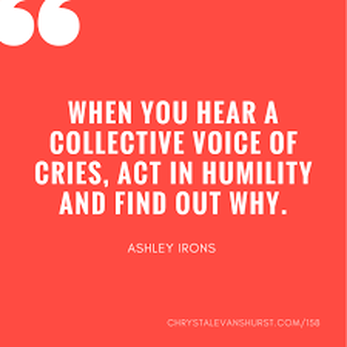 Photo: Courtesy of Christian Magazine Diversity can, in fact, be sharpened as a double-edged sword that is quite often masterfully and strategically used, particularly by white-led organizations. One sharp edge of the sword is quite frankly the commodification of diversity. This inflicts a particularly deep and painful wound on black people in particular because it enables [white-led] organizations to make money literally off the backs of our bodies --- as commodification of the black body was at the core of slavery. Nowadays, commodification of traditionally oppressed bodies is repackaged under “diversity”: a package label that not only is politically acceptable but is in fact considered a label in progressive movements towards racial and social justice. Diversity is a “feel good” label. And when organizations can tout this feel good label at presentations, fundraising events, churches, schools, and on grant applications, --- the money flows to the “great work” these organizations profess to be doing. And there it is. Commodification. Money being generated off the presence (or backs) of black and brown bodies. The other edge of this sword is optics. More often than not, organizations use diversity as a concealer, working overtime to gather and plop black and brown bodies in its environment while not addressing the environmental aspects that does not make existing in a black or brown body sustainable within the organization. The overriding issue with diversity as it is held by most organizations is that it emboldens an organization to shout, “look at us, we’re good because we’re diverse!” while not engaging in any personal work to examine how one may actually be playing an active or complicit role in perpetuating a harmful working environment for black and brown employees. As a result, diversity is then used to hide the ways in which whiteness is internally and systemically embedded in the organization’s DNA. While there is a tendency to conflate whiteness with the racial identity of white people, I hold a clear distinction between the two. When I use the term whiteness I am referring to a tool used to sustain white supremacy. It is characterized by unexamined privilege; an often unconscious perception of being white as the norm, and being a person of color is other than normal; and silence or acute discomfort with interrogating systems, policies, culture and relationships through a racial lens. The truth of the matter is that anyone can wield the tool of whiteness. However, the harm done by whiteness hits different on black and brown bodies when it is used by white people. This summer, I served as the Director of Operations for a summer camp that worked to develop leadership skills in young girls. Camp was held at a naturally picturesque college which is nestled in a vibrant urban neighborhood and has a longstanding tradition and legacy of playing an active role in racial and social justice. Our Summer staff started out with a team of 12 women: most of whom identified as Black/WoC and Queer. From our collective team experience, there emerged 3 critical lessons that highlight the ways in which diversity is being inappropriately held in our modern movements towards racial and social justice. Lesson 1: Diversity Does Not Mean “All Are Welcome” As both a staff member and resident of the host city for camp, I walked into the camp experience with the naive notion that campers and families would adequately reflect and represent both the racial and socioeconomic diversity of my city. Like several of my colleagues, I held this notion primarily because it is a reasonable assumption that an organization would reflect the population of the city/region it is operating within, particularly when it espouses to take up space in a way that honors diversity. According to the 2018 Census, the host city is roughly 36% white, 27% Hispanic/Latinx, 24% Black/African-American, 16% Asian, and 7% who identify as multi-racial. From a socio-economic perspective, from 2013-2017, the median income was $63,251, the per capita income was $37,256. On average, there were 3 members in a household. The average rent in the host city last year was around $2,500. Tuition for camp ranged between $2,700-$3,700. The organization provided financial aid. It was unclear as to the number of recipients of such aid. Ultimately, the data provides clarity relative to the difficulty with which the average girl living within the host city limits would be able to access and experience camp being offered in their own city. Within the first few days of camp starting, black staff members began to have a gut-wrenching feeling that the environment was not welcoming for them. During a staff meeting, a black woman asserted, “this is not a safe space for black women and girls to heal.” What was heard and understood as a defensive rebuke of the assertion by their supervisor was, “that’s not what this space is for...what about Latinx girls, other brown girls, Asian girls, girls who are LGBTQIA...” This statement aggressively pulled at the strings of trust between staff and their leader, unravelling their feelings of being seen and welcomed in the organization. As a result, within a month of a camp program that is only 6 weeks long, the organization hemorrhaged 25% of its summer camp staff, all of whom were black women. Simultaneously witnessing and bearing the brunt of whiteness was difficult for staff members. One word used by a woman of color staff member during a meeting to describe how she felt was simply “bamboozled.” A personal demonstration of the culture of whiteness within the organization is seen in the following email exchange between me -- black staff member (BW) and a white mother (WW): WW: Attached are 2 documents...so that I don’t have to type it all into the system... BW: So that I have clarity, is there an extraneous reason as to why this is just now being turned in?... WW: Because I’m extremely busy with work and life generally...do I need to cc the CEO of the organization? I served on the board for 6 years and do expect a little more respect. WW: And just to be extra crystal clear... I brought tens of thousands of dollars to the organization, so if this is how I will be treated going forward I will re- think how I support the organization... BW (c c-ied CEO, COO, COP, and Director of Summer Programs): Your responses are highly offensive. Regardless of where you think you sit. How you think you sit, and how much money you have generated for this organization, your words are not only hurtful, but profoundly and dangerously rooted in a level of white privilege that I simply will not tolerate. Much like the organization I worked for this summer, many organizations (particularly white-led organizations) are well-intentioned in stepping into the good work of diversity, equity, and inclusion. However, my point here is to amplify the fact that not enough white people (and leaders of these organizations) are talking about the ways in which white people continue to center whiteness within that good work. Lesson 2: Diversity Does Not Absolve An Organization From Pausing To Interrogate The Impact of Its Decisions, Actions and Objectives On any given day, campers would ask to touch the hair of black women or call them “Auntie.” Black staff were asked by white girls to fold or clean their clothes. To add another layer of harm, a camper was observed engaging in a highly egregious act towards two black women who were members of the college community — which ultimately played a role in the decision to send said camper home from camp early. These instances of whiteness gave a general sense among black women in the space that their time and presence was being used to serve as ad hoc mammies of predominantly white girls. Girls who were coming into the space with an intense generational legacy of whiteness. Despite the downward spiral the staff was experiencing, the organization chose not to pause. Instead of finishing Session 2 and electing not to go through with its final session -- at the time of my writing this piece, the organization was gearing up for Session 3, choosing to push towards and through its last 2 weeks. On face, it is understandable that an organization would want to persevere and push through the last 14 days of a program. However, given the fact that by the end of Session 2, several black women left the team (1 due to a stress-induced illness, and 2 due to no longer being willing to remain in an environment that did not honor them) and many staff members expressing varying levels of suffering, the decision to continue was deeply dismissive of the relationship between the organization and its summer staff. The night I decided to leave the team, the COO asked me what it would take for me to stay and help out with closing day for Session 2. To her question, I responded, “Cancel Session 3 and honor the full contract of all summer staff members”. Contemplating my request, the COO stated that the organization would lose money on the facility it paid for to hold camp and that it would have to refund money to those who were planning to attend Session 3. As a result -- from the organization’s perspective, honoring my request was not financially responsible. Acknowledging the fact that the organization would have had to absorb a significant price in pausing Session 3, the monetary price pales in comparison to the internal price summer staff had to absorb in being placed in a painfully stressful working/living environment. In ultimately placing a summer camp program and the monetary cost of it over the bodies and wellbeing of women being directly and negatively impacted by their choice, the organization placed higher allegiance to money and ego over the hurt-filled lived experiences of camp staff members. This is the commodification of diversity in action. Interestingly, the organization prides itself on the notion of women and girls being “all kinds of powerful.” The irony with this is that the choice of the organization to place anything over the value of the lived experiences of women in general, and black women in particular who staffed the camp program, was the weakest and most perverse display of feminine power. Lesson 3: Diversity Does Not Shift Power Reflecting on my summer camp experience, the equation that I think best describes how harm is exacted if diversity is not appropriately held is: Diversity - Power Shifts + Capitalism & Ego = The Status Quo of Hurt, Harm and Suffering From Whiteness As a society, we are focusing on the wrong point in our quest to create and manifest racial and social justice. We are placing our attention and intentions on the wrong piece of the equation in our attempt to create a better world. And here’s why: Diversity just is. It is already existing. We do not have to create it. Diversity is literally all within and around us. However, diversity will not be properly held and honored if the power dynamics remains out of balance and skewed to the advantage of white people. It is a pivotal aspect of the ultimate goal of moving all of us towards confidently engaging in the continuous and tedious work to restore balance in how power is understood and held within relationships. Shifting power allows each of us to simultaneously take up space and create the space required to hold all of who we are and the diverse dimensions each of our whole selves hold. Diversity without any shift in power is the point at which we inflict harm on one another in the name of diversity. By S. Rae Peoples
Originally posted on LinkedIn on February 13, 2015 This is how in one song, an influential musical artist like Beyoncé can propel the feminist movement forward by leaps and bounds, only to, in one fell swoop of another song, knock all of creation back to nearly the dark ages of gender (in)equality: Over this week, the media has been all abuzz with reactions to Beyoncé’s performance of “Take My Hand, Precious Lord” at the 2015 Grammy Awards. At first glance, the situation is just something to chalk up to the nuances and craziness of show business. But when you really start to look at how it all played out, this “minor” nuance becomes one gigantic smack clear across the face of feminism. This realization is surprising, considering that Beyoncé is such a prolific feminist, who with one song lasting less than five minutes, singlehandedly catapulted the word, “feminist”, and it’s meaning into public discourse. In fact, it is in this very song that the insights from Chimamanda Ngozi Adichie’s “We Should All Be Feminists” speech is so tastefully highlighted. So, let’s reassess the Grammy’s brewhaha against the backdrop of additional excerpts of Adichie’s speech, and the core purpose of the movie Selma: Background Ledisi, an accomplished musical artist in her own right, plays the character of Mahalia Jackson in Selma. Performing within this role, Ledisi sings a beautiful, hair-raising on your arm, back and neck rendition of “Take My Hand, Precious Lord.” So far, so good. No foul, no harm...until... The Grammy’s Want Ledisi The powers that be wanted “Take My Hand, Precious Lord” performed at the Grammy’s. Now, at this point, it is reasonable to assume that Ledisi should, and would be performing the song since she was the one to sing it in the movie. However, at some point in the planning process, Ledisi was out, and Beyoncé was in. According John Legend, during his interview with ET: “We were actually approached by Beyoncé. She wanted to do an intro to our performance and introduce us…you don’t really say no to Beyoncé if she asks to perform with you." Here’s the issue with a response of “you don’t say no to Beyoncé”: That answer is just mindboggling, especially given the fact that John Legend took part in, and has received awards for a movie about a movement that, in the face of wrong, was all about saying no. In fact, it would be safe to say that the very reason for the majority of Mr. Legend’s performances this year was due to his work in a film that revolved around standing up for what’s right. If Beyoncé made such an inconsiderate request, then just purely on a human decency, common courtesy, what about the golden rule level, the proposition was wrong. There was a perfect opportunity to “practice what you preach” (or act out on screen) for Mr. Legend. Alas, the opportunity was sorely missed. Ledisi’s “Graceful and Classy” Reaction Ledisi is just as surprised as the rest of us upon realizing that she wouldn’t be performing her song from Selma. In the face of this blatant affront, Ledisi has been praised for her reaction with phrases like, “she’s taken the high road” and “she’s disappointed but not upset.” This kind of praise presents the notion that feelings of anger in this situation is not okay. It ignorantly implies that by stating her true feelings, Ledisi would not be taking the high road- because the high road (wherever the hell that is) does not involve the recognition of feelings of hurt and outrage. To take the high road, and to be praised for grace and class involves women, in particular, cowing down and suppressing thoughts and emotions that are perceived to be too masculine. In her speech, Adichie presents this very issue as a barrier to gender equality when she states: When we think about feminism, what it means to be a feminist, and the history of the feminist movement, we automatically slip into the “us vs. those other” or them” mentality. Our minds immediately consider the work that has been done, and has yet to be done, by us women to address the wrongs in society that has been created by those men. As women, we become fixated on tearing down the restrictions placed on us by patriarchal society. Yes, this particular aspect of feminism is indeed a very necessary step to establishing gender equality. But perhaps even more heinous than the sexual, economic, social, and political restrictions men place on women, are the restrictions women place on themselves in the same areas by the mistreatment of each other. As women, we must be just as committed to addressing this kind of injustice if we are going to continue to make strides towards gender equality. Feminist: A person who believes in the social, political and economic equality of the sexes. Adichie adds to this definition with the idea that a feminist is a man or a woman who says, “yes there’s a problem with gender as it is today, and we must fix it, we must do better. The take away from this particular Grammy’s fiasco is that the process of fixing the gender problem involves, first and foremost, us women a much better job in the way we treat each other. By S. Rae Peoples
Originally Posted on LinkedIn on November 7, 2014 Still reeling from the huge Republican sweep in the midterm elections, I got hit with yet another bizarre reality of the election on Wednesday night. While listening to a commercial on MTV, I hear the words, "78.7 % of Millennials did not vote in the 2014 midterm elections." Responding to what clearly had to be erroneous information, I found myself yelling at the T.V., "Wait, What? Did I just hear that right?..(chuckling) that just can't be true...." But it was true. And apparently, MTV was just as astounded as I was on this matter, as they (in the same commercial) launched the #WhyIDidn'tVote campaign to illicit feedback from Millennials so as to attempt to understand just what the hell was going on with this group on election day. Personally confused and concerned about this, I decided to do a bit of my own research, starting with my own family. In a family that prides itself on being politically savvy and engaged, the absence of a generation during a political exercise sparked a myriad of reactions, particularly between the millennials and the Gen Xers in the family. Being a Gen Xer myself, I completely understand the sighs and side eyes my cohort is quick to throw to Millennials for not showing up at the polls. From the argument of "our ancestors died so that we could vote today" (completely valid), to don't vote/don't complain quips (equally valid), it's clear we GenXers feel some kinda way about the absence of Millennials at the polls this past Tuesday. However, before we declare Millennials as a detached, self-absorbed, and politically obtuse generation, let's be clear here: Milliennials are a political force to be reckoned with. They have a history of coming to the polls in droves. When they do show up, they show out, speak up, and affect change with an unparalleled fierceness (refer to the 2008 and 2012 presidential elections). With so many refraining from flexing their political muscles, during the midterms this year, I couldn't help but think that there is a crucial lesson and warning that is rooted in their (in)actions. My conversation with some millennials revealed that much was said in their peers not participating on Tuesday. Here are some key points from the conversation to consider:
In addition to these points, for Millennials who identify as Black/African-American, voting to respect the struggle of ancestors who fought for the right to vote, will always be important. However, it has been pointed out: "We fully understand our responsibility to vote because our ancestors fought for us to vote. And yes, this is an important aspect, but that does not negate the need for us to be able to believe in what should drive us to the polls." For the Black community, it is true that not voting when you have clarity on who you want to support, and why, is certainly an affront to the fight of those who came before us. However, the other side of the coin, and just as egregious, is voting knowing you don't support any candidate, just to say "I voted." In the end, our ancestors fought not so we would have to vote if we felt no conviction to do so for any candidate. I would offer that they fought so that we could have the choice to vote. After my discussion with my family, I'm convinced that that MTV (and the rest of us) got this all wrong: Millennials actually voted. It was a vote of no confidence in the political trajectory of our nation. As one millennial stated: "If a no vote could count, no one would have won. If there was a "vote of no confidence" option on the ballots, that would have been great, because many people, not just millennials would have chosen that option. But that isn't an option, and I'm not going to vote without having confidence for either side just for the sake of voting." In all honesty, the confidence of Millennials in our political system has been deteriorating since 2008. According to a report in Time: Obama won 60 percent of the 18-29 vote last November, but that was down six percent from his victory in 2008. More worrisome for Democrats was that according to new data from the Census Bureau, youth turnout dropped precipitously between 2008 and 2012, from 51 percent of eligible 18-29 year olds to 45.2 percent.Clearly, with their dwindling political turnout the past few years, Millennials have been trying to convey a very profound message all along. We just haven't paid attention to it, until now- when basically 80% of an influential population in our society refused to engage on Tuesday. Whether we think Millennials should have gone to the polls, at this point is really inconsequential. We could reprimand and scorn Millennials until we're blue in the face, and at the end of the day the fact will remain the same: they didn't show up. While we don't necessarily have to agree with the sentiments and opinions outlined here, we have to realize that there are Millennials who feel this way. With this realization in mind, it would behoove the DNC to listen to the excruciating loud silence of a generation that placed them in office, learn the lessons to be had, and adjust its strategy, if it plans to gain any kind of momentum for 2016. |

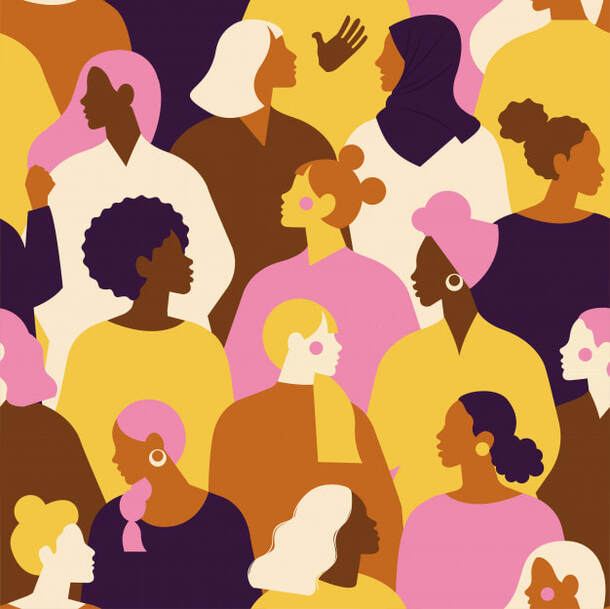

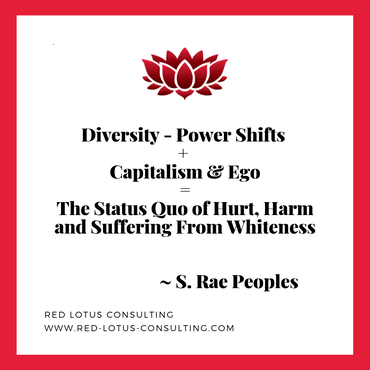
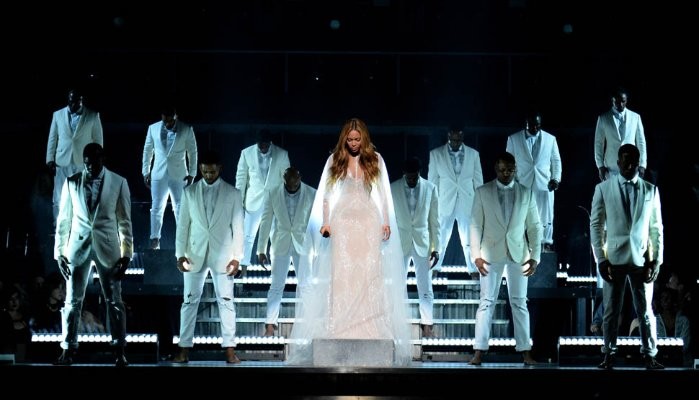
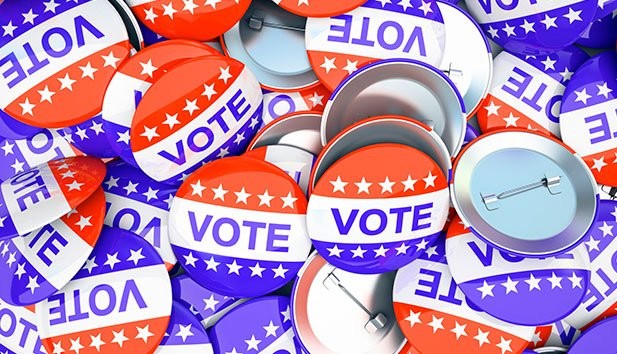
 RSS Feed
RSS Feed
